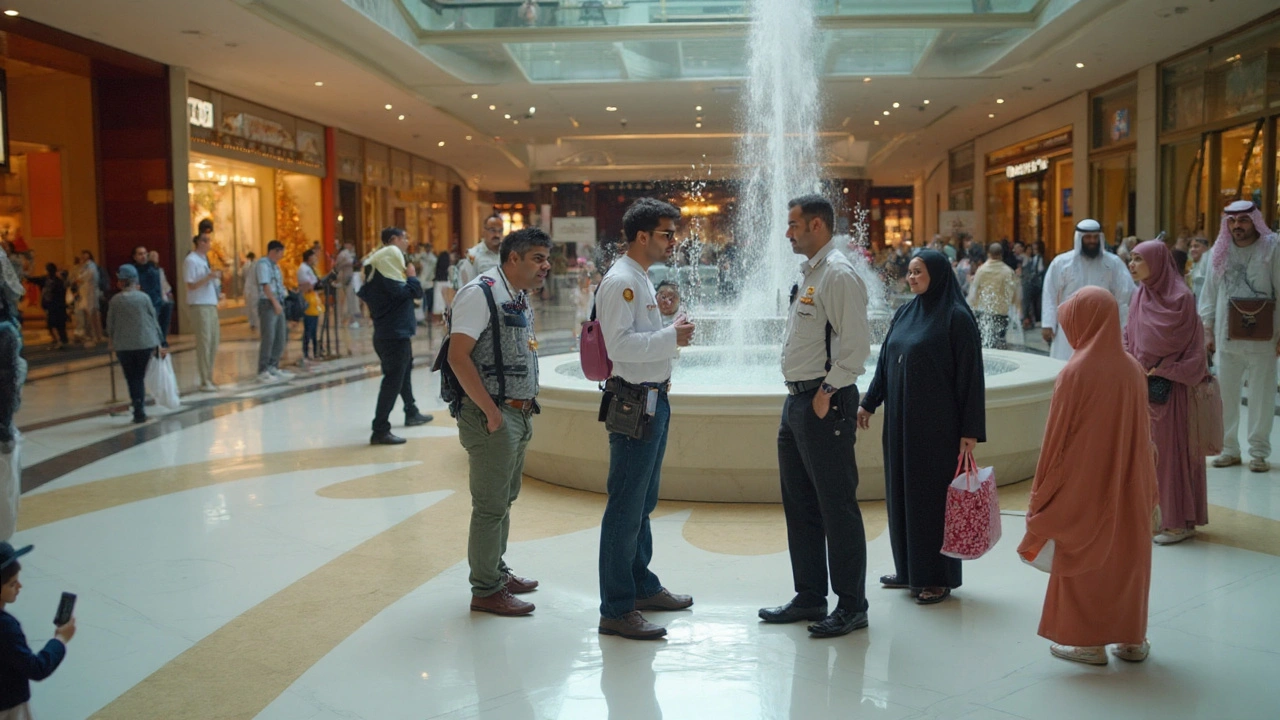
Flip the bird in Dubai and you’re not just being rude-you’re likely committing a crime. The UAE treats obscene gestures, insults, and public indecency seriously. If you’re headed to Dubai for work or a quick city break, this is one of those small habits that can snowball fast into police reports, travel bans, and court dates. Here’s the straight answer, the law in plain English, and what to do if you’ve already had a heated road-rage moment.
TL;DR: The quick answer and key takeaways
Short version so you don’t scroll in panic:
- Yes-showing the middle finger can be treated as an obscene gesture or an insult under UAE law. That’s a criminal matter, not just bad manners.
- It applies on the street, in cars, at the airport, in malls, clubs, and online (including messaging apps and emojis).
- Penalties vary by case but can include detention, fines, a criminal record, deportation for non-citizens, and temporary travel bans while a case is active.
- Intent matters less than effect: if someone feels insulted and complains, police can act. CCTV and dashcams are common.
- De-escalate fast: apologize, avoid arguing, and if police get involved, be polite, ask for a translator, and contact a lawyer and your consulate.
What you’ll get below: the legal basis (in simple terms), how cases typically unfold, what to do if it happens, do’s and don’ts, and answers to questions travelers actually ask.
What the law says in the UAE (and how it’s applied)
Dubai follows UAE federal law. Rude gestures and insults are treated within two main legal buckets:
- Crimes and Penalties Law (Federal Decree-Law No. 31 of 2021): covers insult and acts that offend public morals or modesty. Obscene gestures can fall here.
- Cybercrime Law (Federal Decree-Law No. 34 of 2021): covers insults, threats, and indecency online-messages, emojis, DMs, social posts, and video calls.
In day-to-day reality, police look at context: Were you in public? Did someone complain? Was the gesture clear? Was it recorded? A calm apology sometimes diffuses things at the scene. But if a complaint is filed, it can trigger a case even if you’ve already left the area.
Key points in plain English:
- Obscene gesture = potential criminal insult. The middle finger is commonly understood as obscene/insulting in the UAE.
- Public vs private: Doing it in public raises the public-decency angle; doing it online or in private messages can still be a crime if it insults or offends modesty.
- Evidence: Police rely on the complainant’s statement, witnesses, CCTV, dashcam footage, and your own statements.
- Outcome: Can be a warning, fine, detention, deportation for expats, or case dismissal if the complaint is withdrawn. It depends on facts and judicial discretion.
Where people get caught out most:
- Traffic incidents: Road rage plus cameras equals paper trail. The UAE’s roads are heavily monitored, and filing a complaint is quick.
- Nightlife and queues: Heat-of-the-moment arguments in clubs, malls, or at the airport check-in desk.
- Messaging: Sending a rude emoji after an argument. The online route is often overlooked, but it’s actionable.
Here’s a simple map of conduct to likely legal framing and where it applies:
| Conduct | Likely legal basis | Where it applies | Notes |
|---|---|---|---|
| Showing the middle finger at someone during a road incident | Insult; indecent/obscene gesture under Crimes and Penalties Law (FDL 31/2021) | Public: streets, highways, parking lots | Often supported by CCTV/dashcams; complainant report triggers case |
| Flipping a bouncer or cashier in a mall/venue | Insult; public decency issue (FDL 31/2021) | Shops, malls, clubs, restaurants | Security may detain and call police; venue CCTV common |
| Sending a middle-finger emoji over WhatsApp/DM | Online insult/indecency (FDL 34/2021 Cybercrime) | Online platforms, private chats | Private chats are not a legal safe zone; screenshots count as evidence |
| Gesture made inside a private car, seen by others | Insult; potential public indecency (FDL 31/2021) | Private space but visible in public | Visibility to public matters; complainant observation is enough to report |
| Gesture during a call/video meeting | Online insult (FDL 34/2021) if recorded or reported | Video calls, livestreams | Recordings, screenshots, or multiple witness statements can be used |
About penalties: statutes set ranges and give courts discretion. Outcomes vary with context (provocation, intent, apology, prior record, presence of minors, public setting, cooperation). Non-citizens face the added risk of deportation after conviction. While many cases end with a fine or settlement, you should not assume it’s minor or that you can fly out mid-process. An active complaint can lead to a temporary travel ban until the file is closed.
If you’re wondering whether the law has changed recently: the UAE overhauled its Penal Code in late 2021 and updated cybercrime rules the same year. Enforcement through 2024-2025 has remained consistent: public decency and insult offenses are enforced, including gestures.

Real-world scenarios, outcomes, and how cases typically unfold
Not theory-this is what tends to happen on the ground:
- Road rage moment: You flash the middle finger in Dubai at another driver. They note your plate, grab dashcam footage, and file a complaint at the nearest station or via an e-service. Police call you in. If evidence is clear, a case opens.
- Club or mall argument: Security intervenes, asks both parties to wait. If the other person wants to proceed, police are called. Venue CCTV gets reviewed. Statements are taken.
- Airport queue meltdown: The worst place to lose your cool. Airport police are on-site; your travel plans can be paused if a complaint is filed.
- WhatsApp fight: You send a middle-finger emoji after an argument. The recipient screenshots and reports. You may be summoned; metadata and device checks can follow.
How a case can progress:
- Complaint filed: The complainant gives a statement and any evidence (video, screenshots, witnesses).
- Police contact: You’re asked to attend for questioning. You can request a translator if you’re not comfortable in Arabic.
- Mediation or escalation: Sometimes the officer encourages an apology or settlement. If the complainant insists, it proceeds.
- Public prosecution: The file goes to the prosecutor, who decides whether to charge.
- Court: If charged, you’ll have hearings. Lawyers can present defenses (mistaken identity, unclear gesture, no intent to insult, or no public visibility).
- Outcome: Could be dismissal, fine, detention, suspended sentence, or-if convicted and you’re a foreign national-deportation.
Travel ban risk: If a case is active, a temporary travel ban can be placed so you can’t leave until it’s resolved. This surprises tourists who assume they can “sort it from home.” In practice, you resolve it in the UAE.
Does apologizing help? Often, yes. A sincere apology-especially right away-can lead the other person to drop the complaint. But once it turns into a formal case, it’s up to the authorities, not just the complainant.
What about intent? Courts weigh intent but also the act’s effect. If the gesture is universally recognized as obscene, arguing “I didn’t mean it” won’t always save you. Evidence quality matters more: was the gesture clear, seen, recorded, and directed at the complainant?
Deportation: It’s not automatic for every insult case, but it’s possible for non-citizens after conviction. Judges look at severity, pattern of behavior, and context. If you’re an expat working in Dubai, that’s a career-level risk you don’t want.
What to do instead: etiquette, checklists, and crisis steps
Best move is prevention. Second-best is damage control.
Simple etiquette switches:
- Hands neutral: Keep both hands on the wheel in traffic disputes. If you must signal frustration, use an open palm facing down to signal “slow down” rather than anything that can be read as aggressive.
- Sarcasm-free face: No exaggerated faces or mock claps. They can be read as insulting in a tense moment.
- Words, not gestures: If you need to communicate, keep it short and neutral-“No problem,” “Go ahead,” “Sorry.” Then walk away.
- Online pause: Don’t send emojis in anger. Type your reply, wait two minutes, then delete it.
Fast de-escalation script if you slipped up:
- Immediate apology: “Sorry. My mistake.” Keep it brief and calm.
- Don’t argue about who started it. You’re aiming to end it.
- Step away or drive on safely. The longer the scene lasts, the more likely someone calls security.
- If approached by security or police, stay polite. No swearing. No finger pointing (literally).
Checklist: what to do if a complaint is filed
- Bring ID and cooperate when contacted. Resisting makes everything worse.
- Ask for a translator if you’re not fluent in Arabic. You’re allowed to understand what you’re signing.
- Be factual in your statement. Don’t guess or embellish.
- Avoid signing anything you don’t understand. Request a lawyer.
- Contact your consulate for guidance on local procedures.
- Collect your own evidence: dashcam, CCTV request from venue, witness details.
- Stay available in the UAE until cleared. Travel bans can apply during active cases.
Defenses that sometimes matter (case-by-case):
- Gesture ambiguity: You didn’t make the gesture or it’s not clear in footage.
- Misidentification: Complainant confused you with another person/car.
- No audience/public element: Not visible to the public (lessens, doesn’t erase, risk).
- Immediate apology and settlement: The complainant accepts and withdraws.
Red flags to avoid in Dubai:
- Road rage of any kind. The roads are monitored, and complaints are easy to file.
- Public arguments with staff or officials. Power dynamics and cameras make this extra risky.
- Group pile-ons online. Multiple people reporting a message can amplify consequences.
If you’re a visitor on a tight schedule:
- Keep interactions crisp and polite. You’re on camera more than you think.
- If something goes wrong, move early: consult a lawyer, talk to your embassy, and keep your itinerary flexible.
- Don’t assume small-town vibes. Dubai is cosmopolitan but legally conservative on public decency.

Mini-FAQ and next steps if you’re already in trouble
Common questions travelers ask-answered simply.
Is it definitely a crime to show the middle finger in Dubai?
It’s typically treated as an obscene gesture and/or insult. That’s chargeable. Not every instance ends in court, but it can. Don’t risk it.
What if I only did it inside my car?
If someone sees it and complains-or if there’s camera evidence-it can still be treated as a public act. Cars aren’t an immunity bubble.
What if the other person started it?
Provocation won’t necessarily save you. Police and courts look at your act. De-escalation and an apology are usually smarter than arguing fault.
Can an emoji get me in trouble?
Yes. Under the cybercrime framework, insulting or obscene content online (including emojis) can lead to complaints. Screenshots are evidence.
Does intent matter?
Intent is considered, but the gesture’s meaning and effect carry weight. If it’s clearly insulting, that’s the problem.
Could I be deported for this?
It’s possible after conviction, especially for non-citizens. It’s not guaranteed in every case, but it’s a real risk.
If a complaint is filed, can I still fly out?
You might face a temporary travel ban while the case is active. Don’t assume you can leave and sort it from abroad.
Can apologizing fix it?
Sometimes. An immediate, sincere apology helps. If a case is already opened, it may still proceed, but goodwill can influence outcomes.
What should I do if police call me in?
- Stay calm and polite.
- Ask for a translator if needed.
- Request legal counsel before signing statements.
- Provide factual information and any mitigating evidence.
I’m a tourist. Will they go easy on me?
Being a tourist doesn’t exempt you. The law applies equally. Your best move is to avoid the issue entirely.
Is there a list of other gestures to avoid?
Avoid anything that can be read as obscene, mocking, or aggressive. Don’t swear. Don’t spit. Don’t film people during arguments. Keep tone and body language neutral.
Next steps if you’ve already made the gesture and worry a complaint is coming:
- Document the moment: date, time, place, plate numbers, and any names.
- Secure evidence: dashcam, phone video, witnesses.
- If possible, apologize to the other party right away.
- If contacted by authorities, go promptly. Ask for a translator if needed.
- Engage a local lawyer. Your consulate can provide a list of legal contacts.
- Keep your schedule flexible. You may need to remain in the UAE until the case closes.
Authoritative sources behind this guidance: UAE federal legislation-the Crimes and Penalties Law (Federal Decree-Law No. 31 of 2021) and the Cybercrime Law (Federal Decree-Law No. 34 of 2021)-plus public-decency guidance emphasized by Dubai Police. The core principle is consistent through 2025: gestures and messages that insult or offend public modesty can be criminally actionable.
Quick parting rule of thumb: if you wouldn’t do it in front of a uniformed officer, a judge, or your boss-don’t do it in Dubai, offline or online. Your trip will be smoother and your camera roll happier.
Dubai Escort